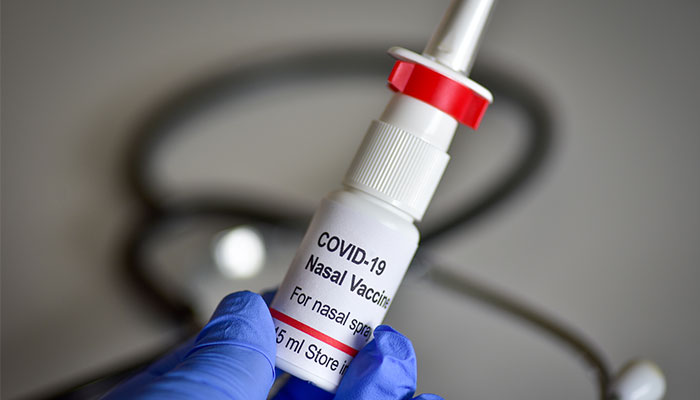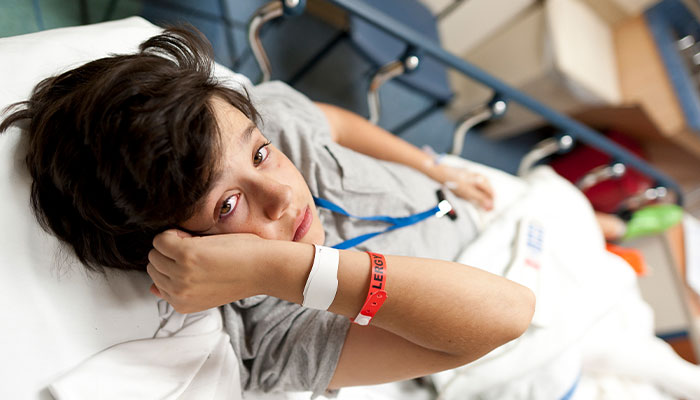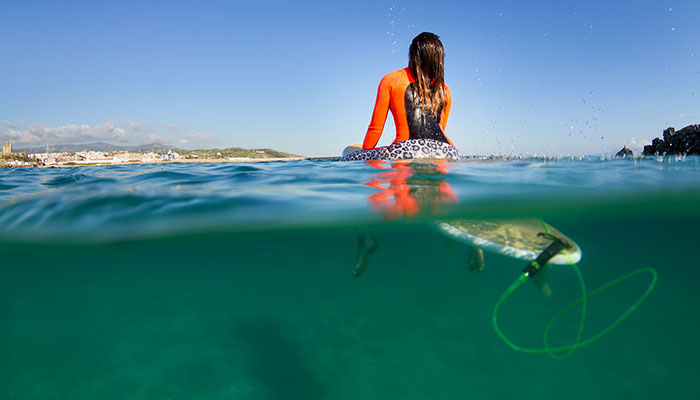Professor Daniela Traini from Macquarie University, and Professor Pall Thordarson from the University of NSW – both core members of the NSW RNA Vaccine Production and Research Network – have received a $100,000 grant from the NSW Government to work with Sydney-based biotech company Medlab to investigate the use of its next-generation NanoCelle® system to deliver the vaccine.

Gamechanger: a nasal spray would eliminate the need for trained personnel to administer vaccinations.
NanoCelle® is already being used to deliver drugs and other therapies, such as medicinal cannabinoids for pain relief, with the potential to expand to other uses.
While her colleague tackles the task of loading the vaccine into the NanoCelle® carrier, Professor Traini says her work involves investigating how to ensure it is delivered intact and fully functional within the nasal cavity.
No more needles
“The current mRNA vaccines, like Pfizer and Moderna, are delivered by intramuscular injection, and have specialised refrigeration requirements,” says Traini.
“If this study is successful, it would possibly allow other mRNA vaccines to be delivered by nasal spray, and it would bring a number of benefits.
“It would ease pressure on the medical workforce as there would no longer be a need for trained personnel to administer vaccinations, there would be no concerns for children or adults who have a fear of needles, and medical waste would be cut.
... it could prove to be a gamechanger not only for remote communities in Australia, but for Third World countries.
“It may be that the vaccines will not need to be refrigerated in this state, and if so, it could prove to be extremely important for people in remote areas without electricity, where it’s challenging to store the frozen vaccine at the required temperature of minus 70 degrees Celsius.
“If this is the case, it could prove to be a gamechanger not only for remote communities in Australia, but for Third World countries.”
Hope on the horizon
Several other vaccines, including seasonal flu, are already being successfully administered by nasal spray. Others, such as polio and rotavirus, are delivered as oral drops.
“Oral drops wouldn’t work for mRNA vaccines, as they would be broken down by the digestive process before they could take effect,” says Traini.
“A nasal spray is ideal, as it would allow the vaccine to elicit immunity.”
Professor Traini’s lab is based at the Woolcock Institute of Medical Research, a national leader in sleep and respiratory research working with Macquarie University.

Pioneer: Professor Daniela Traini has received a grant from the NSW Government to work with Sydney-based biotech company Medlab to investigate the use of its next-generation NanoCelle® system to deliver COVID-19 vaccine.
She has spent her career perfecting drug delivery via the lung and the nose, working to improve nebuliser and inhaler treatments for illnesses including asthma, chronic inflammatory lung disease, emphysema and cystic fibrosis, and examining whether nasal delivery could carry therapies direct to the brain, overcoming the protective but sometimes problematic blood/brain barrier.
The initial study is expected to take about six months, with further trials to follow if it is a success.
Professor Daniela Traini is a Professor of respiratory science and NHMRC Investigator at Macquarie University and the Woolcock Institute of Medical Research.



